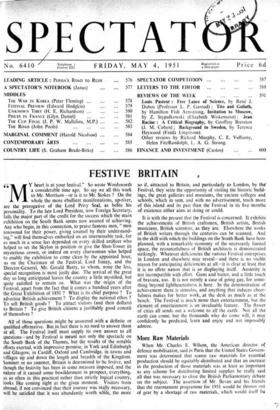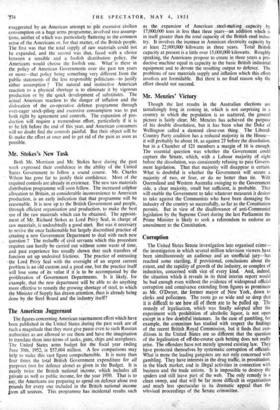More Raw Materials
When Mr. Charles E. Wilson, the American director of defence mobilisation. said in Paris that the United States Govern- ment was determined that scarce raw materials for essential production should be equitably-distributed and that an increase in the production of those materials was at least as important as any scheme for distributing limited supplies he really said all that was necessary to close the British Parliamentary debate on the subject. The assertion of Mr. Bevan and his friends that the rearmament programme for 1951 would be thrown out of gear by a shortage of raw materials, which would itself be exaggerated by an American attempt to pile excessive civilian consumption on a huge arms programme, involved two assump- tions, neither of which was particularly flattering to the common sense of the Americans or. for that matter, of the British people. The first was that the total supply of raw materials could not be expanded, and the second was that, faced with a choice between a sensible and a foolish distribution policy, the Americans would choose the foolish one. What-is there in the policy of American Governments over the past ten years or more—that policy being something very different from the public statements of the less responsible politicians—to justify either assumption ? The natural and instinctive American reaction to a physical shortage is to eliminate it by vigorous production or by the quick development of substitutes. The actual American reaction to the danger of inflation and the dislocation of the co-operative defence programme through over-eager stock-piling and excessive consumption was of put both right by agreement and controls. The expansion of pro- Auction will require a tremendous effort, particularly if it is to be felt before the end of this year, and American consumers will no doubt find the controls painful. But their object will be ro make the effort at once and to get rid of the pain as soon as possible.



































